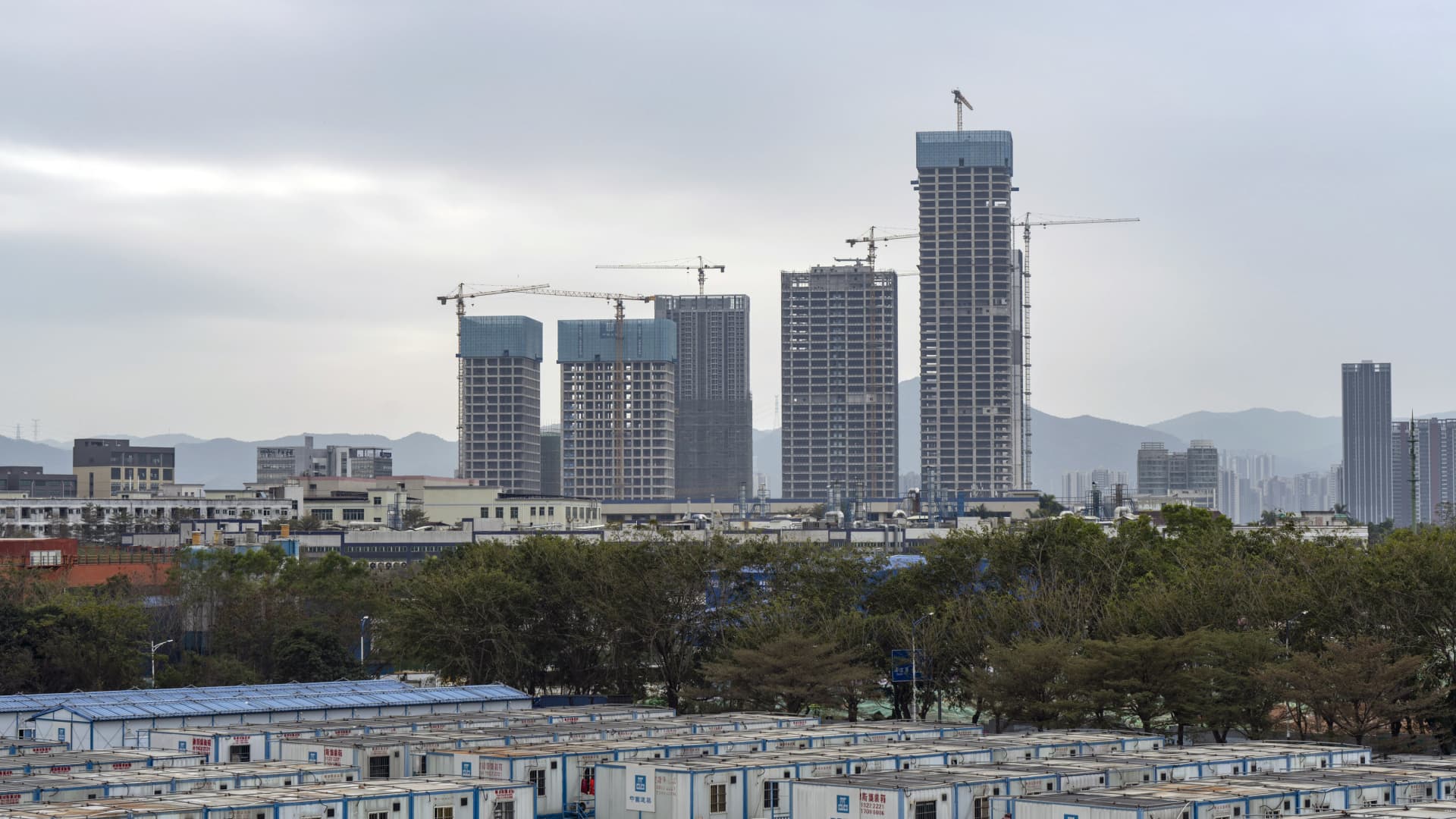Products You May Like
BEIJING — China’s struggling real estate developers won’t be getting a major bailout, Chinese authorities have indicated, warning that those who “harm the interests of the masses” will be punished.
“For real estate companies that are seriously insolvent and have lost the ability to operate, those that must go bankrupt should go bankrupt, or be restructured, in accordance with the law and market principles,” Ni Hong, Minister of Housing and Urban-Rural Development, said at a press conference Saturday.
“Those who commit acts that harm the interests of the masses will be resolutely investigated and punished in accordance with the law,” he said. “They will be made to pay the due price.”
That’s according to a CNBC translation of his Mandarin-language remarks published in an official transcript of the press conference, held alongside China’s annual parliamentary meetings.
Ni’s comments come as major real estate developers from Evergrande to Country Garden have defaulted on their debt, while plunging new home sales have put future business into question.
In 2020, Beijing cracked down on developers’ high reliance on debt for growth in an attempt to clamp down on property market speculation. But many developers soon ran out of money to finish building apartments, which are typically sold to homebuyers in China ahead of completion. Some buyers stopped paying their mortgages in a boycott.
Authorities have since announced measures to provide some developers with financing. But the national stance on reducing the role of real estate in the economy hasn’t changed.
This year’s annual government gathering has emphasized the country’s focus on investing in and building up high-end manufacturing capabilities. In contrast, the leadership has not mentioned the massive real estate sector as much.
Real estate barely came up during a press conference focused on the economy last week, while Ni was speaking during a meeting that focused on “people’s livelihoods.”
Ni said authorities would promote housing sales and the development of affordable housing, while emphasizing the need to consider the longer term.
Near-term changes in the property sector have a significant impact on China’s overall economy.
Real estate was once about 25% of China’s GDP, when including related sectors such as construction. UBS analysts estimated late last year that property now accounts for about 22% of the economy.
Last week, Premier Li Qiang said in his government work report that in the year ahead, China would “move faster to foster a new development model for real estate.”
“We will scale up the building and supply of government-subsidized housing and improve the basic systems for commodity housing to meet people’s essential need for a home to live in and their different demands for better housing,” an English-language version of the report said.
